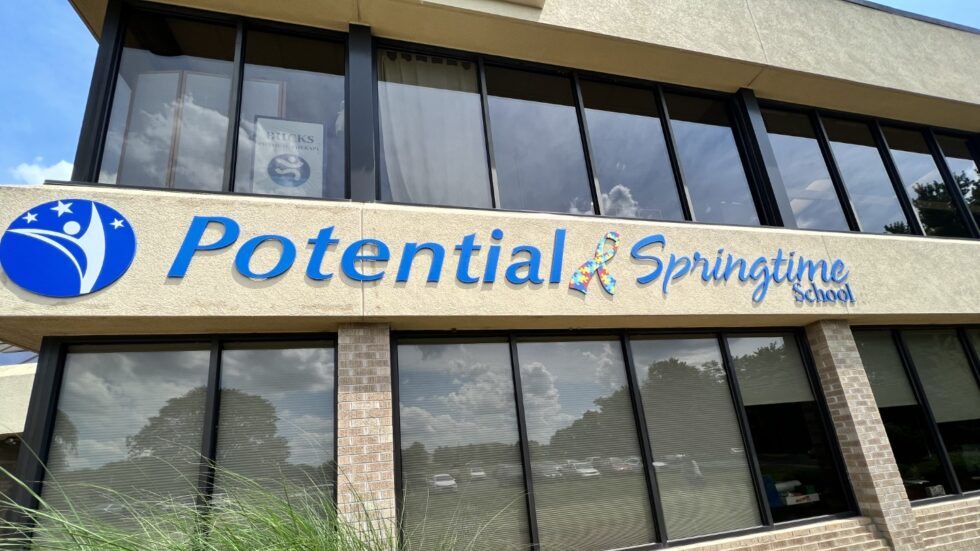Potential’s Springtime School Looks Ahead

Expansion Will Help More Students Reach Their Potential
This fall, Potential’s Springtime School looks to enroll additional middle school and elementary students for a total of about 26 children. Growth has been steady since the school opened in 2010. Since the start of the pandemic, those increases have been significant.
“The Potential School went back to in-person education as soon as we safely could. It didn’t take us long to recognize that remote learning was particularly challenging for students with special needs,” explains Springtime School lead teacher Rachel Landers, BCBA. “At the same time, more and more public schools were realizing that their special needs students would benefit from more individualized programs. When they saw the progress students made with the one-on-one support they received here, many wanted to continue to partner with Potential.”
While it’s been only five years since Rachel joined Potential, she has seen the Springtime School grow from 4 to 6 and now 24 students. “It’s been incredible to be a part of it,” she says. “Seeing the first graduation was really monumental, and feeling the love that we collectively share for our students. For me, it was a mixture of sadness and happiness.”
The goal of the program is, of course, to give students the tools and support they need to move on to the next chapter of their lives, whatever that may be. Because many will be seeking employment, the school offers students vocational training and guides them to opportunities to work at local businesses, such as a thrift store, coffee shop and local farms. “We are looking to expand on that part of our programming,” Rachel explains. “It is wonderful to see the school grow and our students move on to a better future, one where they can reach their full potential.”
About Springtime School
Potential’s Springtime School is a licensed private school for elementary to high school-aged (up to 21) children on the autism spectrum who have not been successful in other programs, have challenging behavior or have an additional medical diagnosis that affects learning.
The Springtime School staff successfully uses applied behavior analysis (ABA) principles as part of regular daily instruction. They partner with families to develop an IEP that strives to enhance the client’s progress and improve his or her long-term abilities.
Springtime School offers:
- Small classroom sizes with no more than six students to a teacher
- A nurturing environment and individualized attention
- Certified teachers, behavior analysts, speech pathologists and occupational therapists
- Highly trained behavior technicians
- Physical therapy, if necessary
In some cases, children may receive both IBHS and Springtime School and benefit from the consistency offered by a combined school and home services program.
